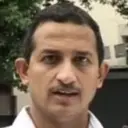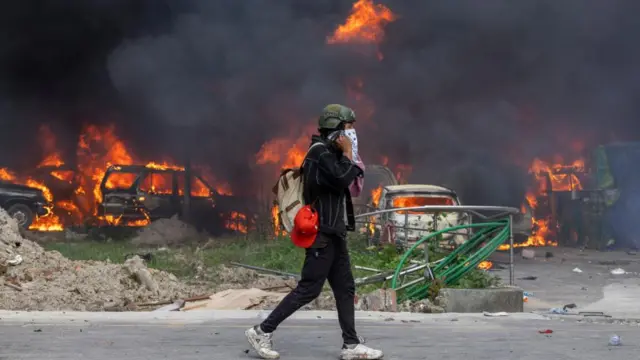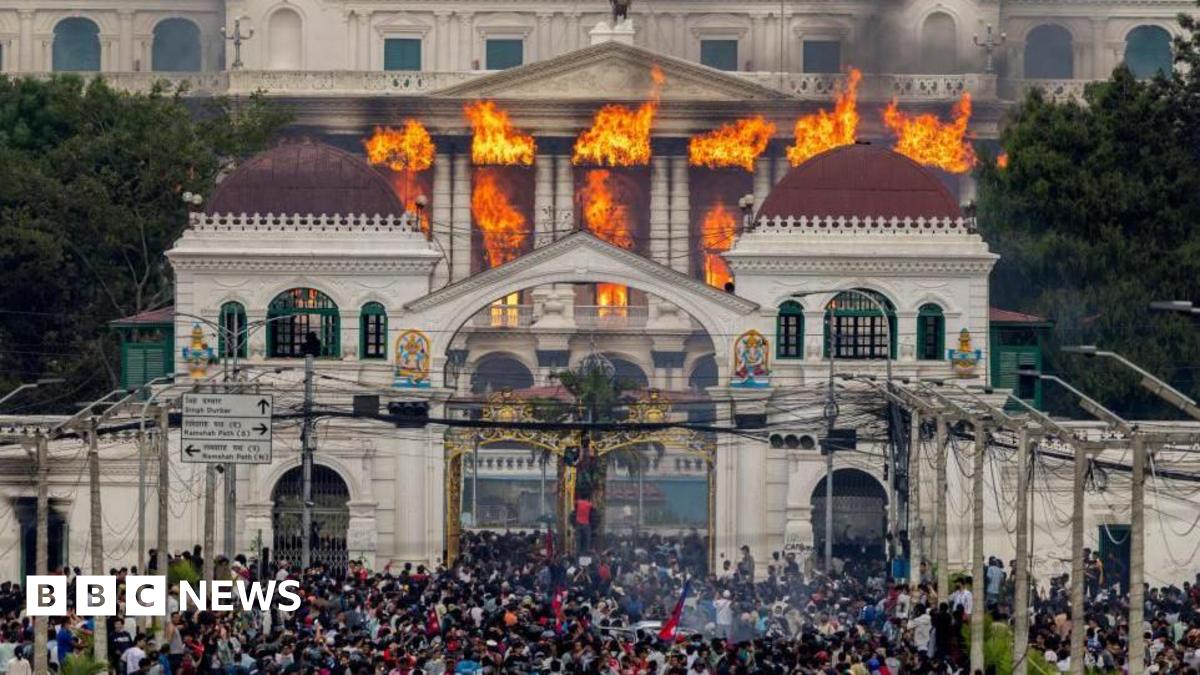
14:32 BST
 Anbarasan Ethirajan
Anbarasan Ethirajan
Global Affairs reporter
 Image source, EPA
Image source, EPA
The protests are not only unprecedented but also reflect the widespread
discontent over the political class in this Himalayan nation.
The anger against
the political leaders is evident with houses of several ministers and other
politicians being vandalised and set on fire.
Some leaders, including
ministers, have reportedly taken refuge with the security forces.
So far, the
protesters have not spelt out their demands apart from rallying under the
broader anti-corruption call. The protests appear spontaneous and there seems
to be no organised leadership.
Though the prime minister, KP Sharma Oli, has
stepped down, there’s no immediate clarity on who will replace him or if there
any other governance structure is being proposed.
With most senior politicians
running for cover, there’s no one in charge. The fact that security chiefs and
bureaucrats are appealing for calm indicates that political leadership has taken a
back seat.
For the moment, there seems to be a power vacuum in Nepal. If there is no government or any other interim authority soon,
then the are chances that the violence may take an ugly turn.
The Nepalese army is respected, and they could play
a role in bringing order. While they have fought a long civil war with the
Maoists they would be hesitant in managing law and order – which is essentially
the job of police and other security agencies.
But someone needs to take a lead
– now.
Unlike the uprisings in Bangladesh and Sri Lanka, here people seem to be
unhappy with all the political class and for their mismanagement of the country
over the decades.
Nepal has had 14 prime ministers since 2008, when the Maoist
rebels joined the mainstream, and the country became a Republic. The continuous
political jockeying for power, with parties shifting alliances, has disappointed
many, particularly the youth.
In the absence of any leadership or authority,
what’s going to happen in Nepal is going to be anyone’s guess.
The priority now
is to restore order.

